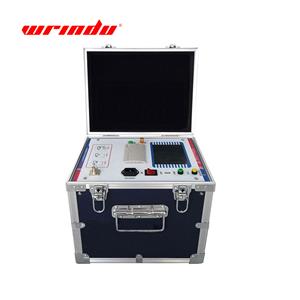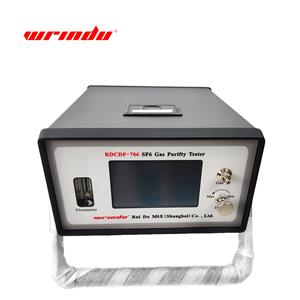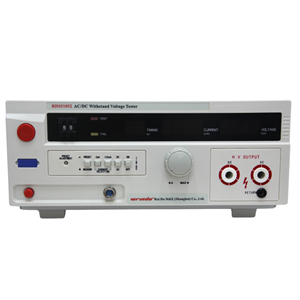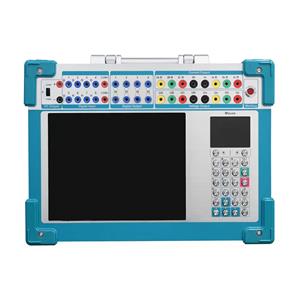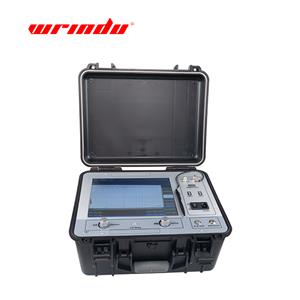dielectric loss tester
-
RD6000 Anti Interference Automatic Test Instrument For Different Frequency Dielectric Loss
The anti-interference pilot frequency dielectric loss tester is a high-precision instrument for testing the dielectric loss tangent and capacitance of various high-voltage power equipment in power plant, substation and other field or laboratory. The Capacitance Dielectric Loss & Dissipation Factor Tester is an integrated structure with built-in dielectric loss test bridge, variable frequency voltage regulating power supply, step-up transformer and SF6 high stability standard capacitor. The test high-voltage source is generated by the inverter inside the instrument, which is used to test the tested object after boosting by the transformer. The frequency can be 45Hz or 55Hz, 55Hz or 65Hz, 47.5 or 52.5Hz. The digital notch technology avoids the interference of power frequency electric field on the test, and fundamentally solves the problem of accurate measurement under the interference of strong electric field. At the same time, it is suitable for the situation of power supply detection by generator after all power failure.
transformer dielectric loss tester high Frequency Dielectric Loss volume resistivity tester capacitance and tan delta test kit tan delta testerEmail Details
-
2708-2024
Analysis on the Causes of Exceeding the Standard Dielectric Loss of Transformer Oil
Dielectric loss refers to the sum of polarization loss and conductivity loss caused by transformer oil under the action of alternating electric field. Dielectric loss factor can reflect the insulation characteristics of transformer, the aging degree of transformer oil under the action of electric field, oxidation and high temperature, and the degree of pollution of polar impurities transformer and charged colloid in oil.
-
1907-2024
Our Delegation Visited Vietnam to Discuss the Electricity Test Equipment Market in Depth
Recently, our company sent a professional delegation to Vietnam for a four-day business visit. The main purpose of the visit was to gain an in-depth understanding of the development status of Vietnam's electric power industry and the local customers' demand for our power test equipment.

